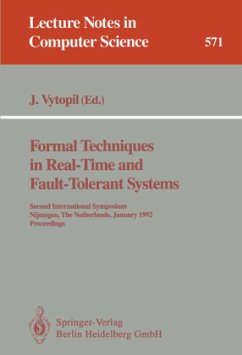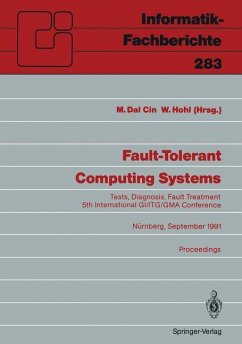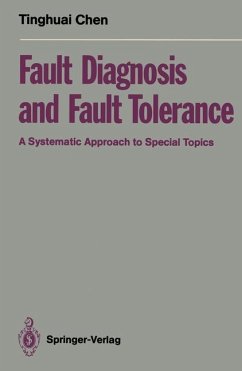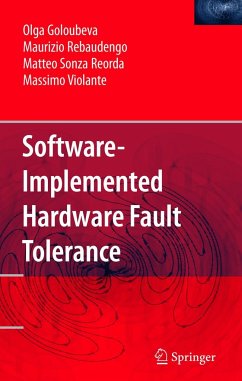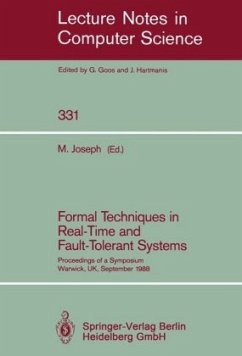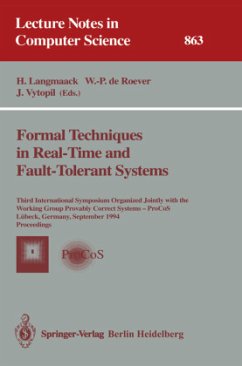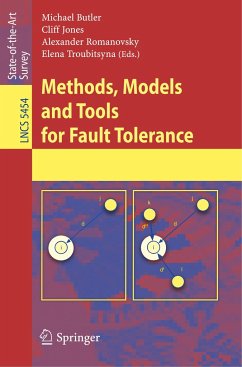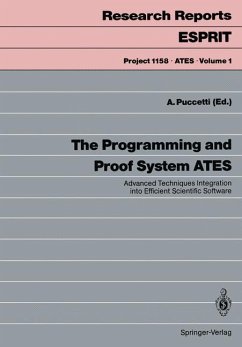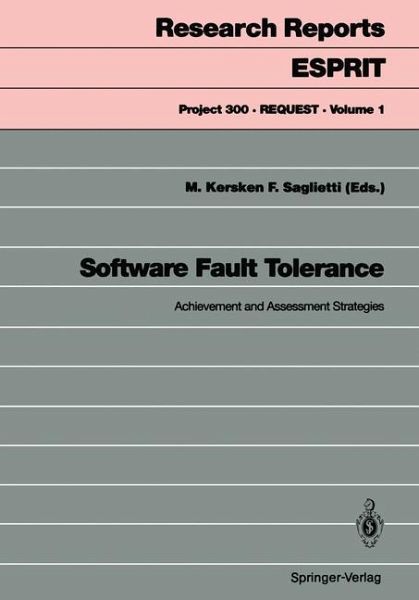
Software Fault Tolerance
Achievement and Assessment Strategies
Herausgeber: Kersken, Manfred, Saglietti, Francesca

PAYBACK Punkte
39 °P sammeln!
This volume summarizes the results obtained by the group working on softwarefault tolerance within the REQUEST (Reliability and Quality of European Software Technology) project of the ESPRIT programme of the European Communities.
It should be read by anyone with a professional interest in safety-critical and fault-tolerant computing.
A generic model is developed for evaluating the reliability of fault-tolerant software systems.Emphasis is put on identification of problem areas in the development and assessment of fault-tolerant software systems and in the components.Examples of crucial failures are those of diverse versions due to a common cause, or failures in the adjudicator which acts on outputs of diverse versions. The causes for common failures of versions are similarities in the solutions of specified problems. Methods were developed to determine similarity among versions by means of well-known software engineering methods. Concerning adjudicators, the influences of several factors on failure detection capability are discussed and guidelines are given for optimal design. A methodology is developed to determine dissimilarity on the level of diverse specifications.
Cost-based support is given for deciding whether diversity should be used in a software system or a single program shouldbe enhanced by additional verification effort.
It should be read by anyone with a professional interest in safety-critical and fault-tolerant computing.
A generic model is developed for evaluating the reliability of fault-tolerant software systems.Emphasis is put on identification of problem areas in the development and assessment of fault-tolerant software systems and in the components.Examples of crucial failures are those of diverse versions due to a common cause, or failures in the adjudicator which acts on outputs of diverse versions. The causes for common failures of versions are similarities in the solutions of specified problems. Methods were developed to determine similarity among versions by means of well-known software engineering methods. Concerning adjudicators, the influences of several factors on failure detection capability are discussed and guidelines are given for optimal design. A methodology is developed to determine dissimilarity on the level of diverse specifications.
Cost-based support is given for deciding whether diversity should be used in a software system or a single program shouldbe enhanced by additional verification effort.
The first ESPRIT programme contained several ambitious projects. of which REQUEST. with its wide brief covering all issues of assessment of quality and reliability of software process and product. was one. Within REQUEST. the research described in this volume. concerning those special problems of software that is required to have extremely high reliability. was particularly difficult and ambitious. The problems of software reliability are essentially twofold. On the one hand there is a concern with methods for achieving adequate reliability. on the other hand there is a need to evaluate what has actually been achieved in a particular case. Naturally. far more effort has been spent over the years on the former problem; indeed. there is a sense in which all of conventional software engineering can be seen as a response to this problem. However. it is becoming clearer than ever that we can only claim to have a truly sCientific approach. and so justify the description software engineering. when we are able to measure the attributes of process and product. It is still common to find software development methods recommended to users on purely anecdotal grounds. This is not good enough. Rational choices between rival approaches can only be made on the basis of quantified costs and benefits. Even more worrying is the tendency to argue that a software product can be depended upon merely because it has been developed by honest men using such anecdotal 'good practice'.






